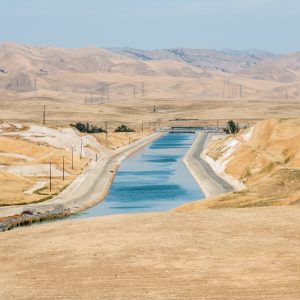The Stream, February 10: Canada Falling Short On First Nations Water
The Global Rundown
Efforts to improve drinking water quality for First Nations in Canada face significant challenges, according to a new report. Subsidence in California could disrupt water deliveries to farmers, while massive water flows at the Lake Oroville dam could force operators to open an emergency spillway. The Philippines’ environment secretary says she will not back down from her order to close nearly two dozen mines. The city of Hamburg, Germany cannot dredge the Elbe river until it addresses water quality concerns. The water authority in Zimbabwe plans to install prepaid water meters to improve revenue collection.
“As much as water is a right, there is a cost associated with the purification and the delivery of the water and someone has to pay for it if it is to be available always, hence this decision.” –Marjorie Munyonga, corporate and marketing manager for the Zimbabwe National Water Authority, defending the water supplier’s decision to use prepaid water meters in an effort to reduce delinquent bills. (Financial Gazette ; All Africa)
By The Numbers
23 mines Number the environment secretary of the Philippines has promised to close due to concerns over watershed damage and other environmental violations. Despite strong industry pushback, the secretary said she is “not going to buckle.” Reuters
1/5 Proportion of water deliveries through the California Aqueduct that could be at risk as parts of the canal sink due to groundwater pumping in surrounding areas. Associated Press
In context: Learn how groundwater pumping is leading to subsidence in Beijing and Jakarta.
5,380 cubic meters per second Amount of water flowing into the Lake Oroville reservoir in California. After large water releases damaged the dam’s main spillway, officials are preparing to employ an emergency spillway that could send trees and debris downstream into the Feather River. The Sacramento Bee
Science, Studies, And Reports
Canada’s federal government is unlikely to reach its goal to eliminate chronic boil water advisories in First Nation communities within the next five years, according to a report released by the David Suzuki Foundation and the Council of Canadians. The report cites “systematic” issues that prevent First Nations from improving their drinking water sources, such as delays in getting treatment systems approved and inadequate representation during decision-making. CBCNews
On The Radar
The city of Hamburg plans to dredge the Elbe river to improve shipping access to its port. However, no dredging can take place until the plans address water quality concerns, according to a German court ruling this week. Reuters
A news correspondent for Circle of Blue based out of Hawaii. She writes The Stream, Circle of Blue’s daily digest of international water news trends. Her interests include food security, ecology and the Great Lakes.
Contact Codi Kozacek




